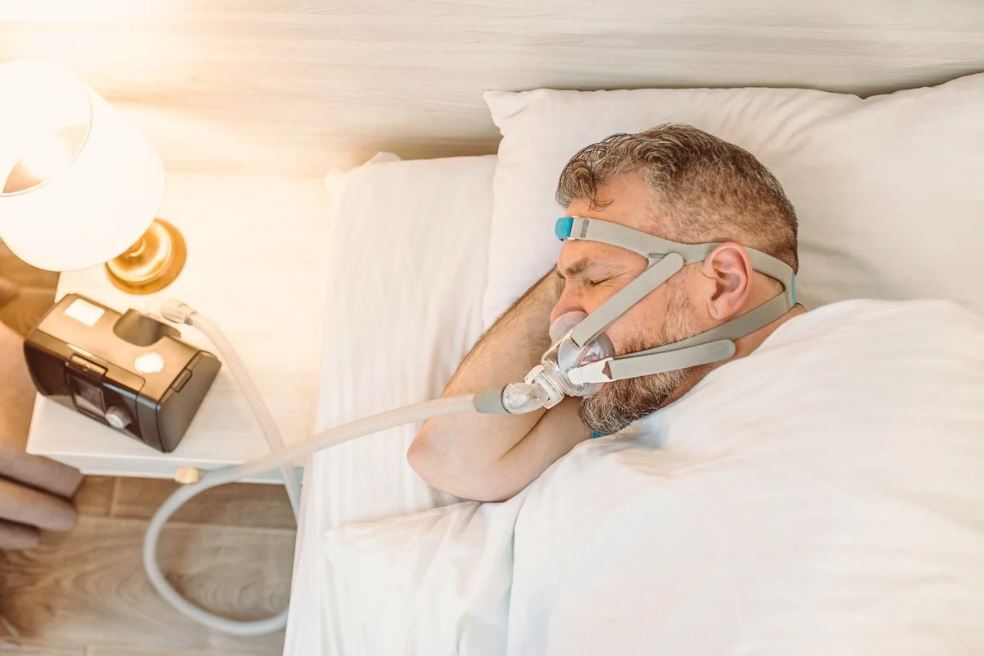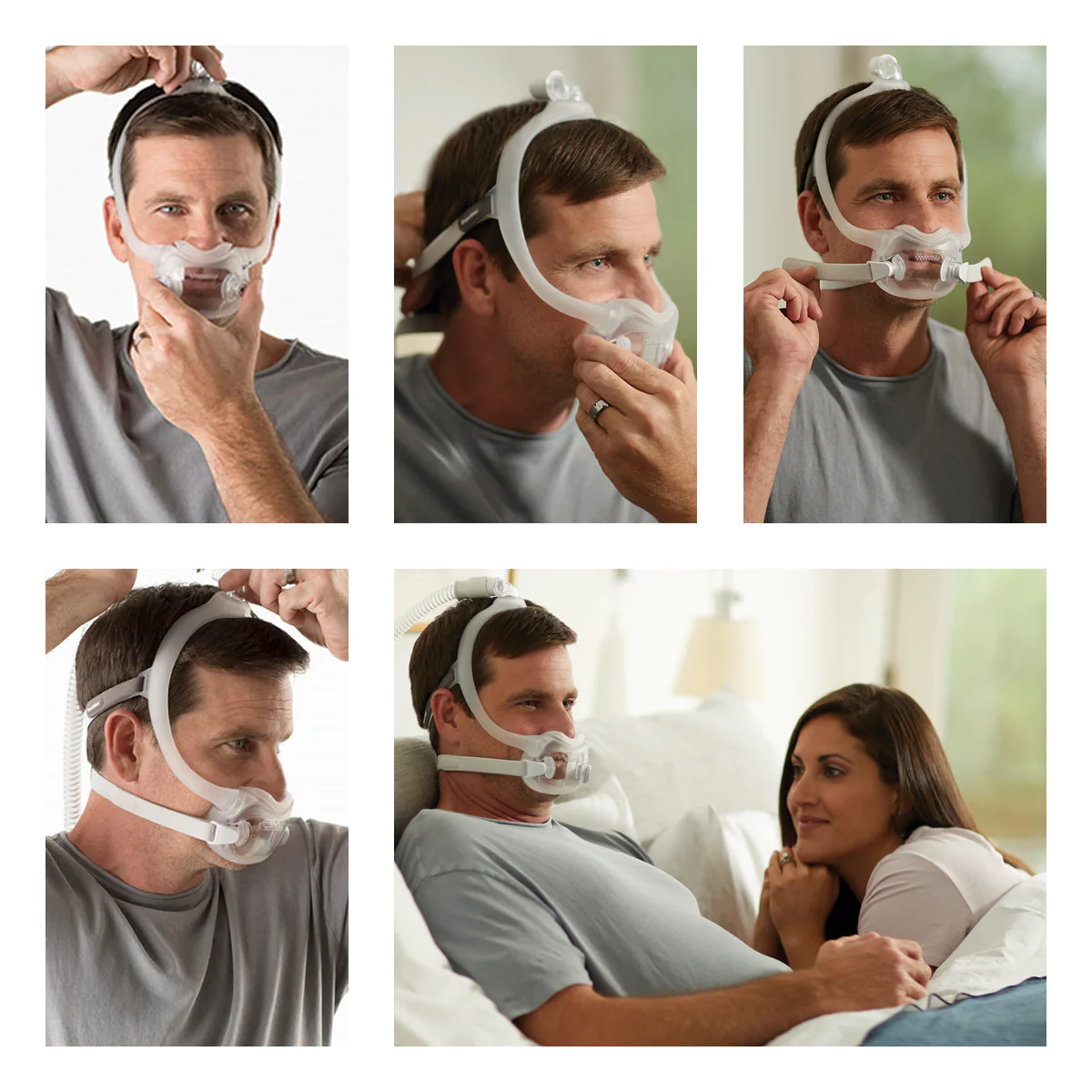Sleep apnea is a sleep disorder that affects millions of people worldwide. It is characterized by pauses in breathing during sleep, which can lead to a variety of health problems if left untreated. But did you know that lifestyle choices play a significant role in the severity of sleep apnea? In this article, we will explore the link between lifestyle choices and sleep apnea severity and discuss how making positive changes in your daily habits can improve your sleep and overall health.
Understanding Sleep Apnea
Sleep apnea is a condition that occurs when the airway becomes partially or completely blocked during sleep. This blockage can result in shallow breathing or pause in breathing altogether, which disrupts the normal sleep cycle. There are three types of sleep apnea: obstructive sleep apnea, central sleep apnea, and complex sleep apnea syndrome.
Defining Sleep Apnea
Obstructive sleep apnea is the most common type and occurs when the muscles in the throat fail to keep the airway open. This can happen due to various reasons such as excess weight, enlarged tonsils, or structural abnormalities in the airway. When the airway becomes blocked, the person may struggle to breathe, leading to snoring or gasping for air during sleep.
See also: Choosing the Right ResMed Mask for Your CPAP Therapy
Central sleep apnea, on the other hand, is caused by a failure of the brain to signal the muscles to breathe. Unlike obstructive sleep apnea, there is no physical blockage in the airway. Instead, the brain fails to send the appropriate signals to the muscles responsible for breathing. This can result in periods of no breathing during sleep.

Complex sleep apnea syndrome is a combination of both obstructive and central sleep apnea. It occurs when a person initially has obstructive sleep apnea, but the use of continuous positive airway pressure (CPAP) therapy, which is a common treatment for obstructive sleep apnea, causes the development of central sleep apnea.
Common Symptoms of Sleep Apnea
Recognizing the symptoms of sleep apnea is crucial for early diagnosis and timely treatment. Some common signs of sleep apnea include loud snoring, daytime sleepiness, morning headaches, difficulty concentrating, irritability, and waking up with a dry mouth or sore throat. These symptoms can be attributed to the disruption of normal sleep patterns and the decrease in oxygen levels during sleep.
In addition to these common symptoms, sleep apnea can also cause other noticeable effects on the body. For instance, some people with sleep apnea may experience nocturia, which is the need to urinate frequently during the night. This can be a result of the body’s response to the increased stress caused by the interrupted sleep patterns.
Furthermore, sleep apnea can lead to a decrease in libido and sexual function. The lack of quality sleep and the decrease in oxygen levels can affect hormone production and circulation, which in turn can impact sexual health. This can cause strain on relationships and overall quality of life.
The Impact of Sleep Apnea on Health
Untreated sleep apnea can lead to a variety of health problems, including high blood pressure, heart disease, stroke, diabetes, and depression. The repeated interruptions in breathing during sleep can put a significant strain on the cardiovascular system, leading to an increase in blood pressure and an increased risk of heart disease and stroke.
Moreover, sleep apnea has been linked to insulin resistance and the development of type 2 diabetes. The disrupted sleep patterns and the decrease in oxygen levels can affect the body’s ability to regulate blood sugar levels, leading to an increased risk of developing diabetes.
In addition to the physical health consequences, sleep apnea can also have a significant impact on mental health. The chronic sleep deprivation and the constant disruption of sleep can contribute to the development of depression and anxiety. The lack of quality sleep can affect mood regulation, cognitive function, and overall emotional well-being.
Furthermore, sleep apnea can exacerbate existing respiratory conditions such as asthma and chronic obstructive pulmonary disease (COPD). The decrease in oxygen levels during sleep can worsen breathing difficulties and increase the frequency and severity of respiratory symptoms.
Overall, sleep apnea can have a profound impact on a person’s health and well-being. It is important to seek medical attention if you suspect you may have sleep apnea, as early diagnosis and treatment can help improve sleep quality, reduce the risk of complications, and enhance overall quality of life.

Lifestyle Choices and Their Impact on Health
Our daily lifestyle choices have a profound impact on our overall health and well-being. From the food we eat to the amount of exercise we get, these habits shape our bodies and minds. Therefore, it is no surprise that lifestyle choices can significantly influence the severity of sleep apnea.
The Role of Diet in Overall Health
A balanced diet is the foundation of good health. Consuming a diet rich in fruits, vegetables, whole grains, and lean proteins can help maintain a healthy weight, reduce inflammation, and improve sleep quality. Additionally, incorporating specific nutrients into our diet can have a positive impact on sleep apnea. For example, foods high in magnesium, such as leafy greens, nuts, and seeds, can help relax the muscles in the airway, reducing the likelihood of obstruction during sleep. Similarly, foods rich in omega-3 fatty acids, such as fatty fish and flaxseeds, have anti-inflammatory properties that can alleviate symptoms of sleep apnea.
On the other hand, a poor diet high in processed foods, sugary beverages, and saturated fats can contribute to obesity, inflammation, and other risk factors for sleep apnea. Consuming excessive amounts of refined carbohydrates and sugary snacks can lead to weight gain and an increased risk of developing sleep apnea. It is important to prioritize whole, nutrient-dense foods and limit the intake of processed and unhealthy options.
Exercise and Its Benefits to Health
Regular physical activity not only helps maintain a healthy weight but also improves cardiovascular health, boosts mood, and enhances sleep quality. Engaging in moderate-intensity exercises such as brisk walking, swimming, or cycling for at least 150 minutes per week can significantly reduce the severity of sleep apnea and improve overall sleep patterns. Exercise helps strengthen the muscles in the airway, reducing the likelihood of collapse or obstruction during sleep. Additionally, physical activity promotes the release of endorphins, which can help regulate sleep cycles and improve sleep quality.
Furthermore, incorporating specific exercises that target the muscles involved in breathing and maintaining an open airway can be beneficial for individuals with sleep apnea. For example, practicing throat exercises, such as singing or playing wind instruments, can help strengthen the muscles in the throat and reduce the occurrence of breathing difficulties during sleep.
The Influence of Smoking and Alcohol on Health
Smoking and excessive alcohol consumption are detrimental to overall health and can exacerbate sleep apnea symptoms. Smoking irritates the airways and increases the risk of airway obstruction, making it harder to breathe during sleep. The chemicals in tobacco smoke also cause inflammation in the airway, further contributing to the severity of sleep apnea. Quitting smoking is crucial for managing sleep apnea and improving overall respiratory health.
Similarly, alcohol relaxes the throat muscles, increasing the likelihood of breathing difficulties during sleep. It can also disrupt the normal sleep cycle, leading to fragmented and poor-quality sleep. Limiting alcohol intake, especially close to bedtime, can help minimize the negative impact on sleep apnea symptoms and improve overall sleep patterns.
In conclusion, our lifestyle choices play a significant role in the development and management of sleep apnea. Adopting a balanced diet, engaging in regular physical activity, quitting smoking, and limiting alcohol intake are all essential steps in improving sleep apnea symptoms and overall health. By making conscious choices to prioritize our well-being, we can positively impact our sleep quality and overall quality of life.

The Connection Between Lifestyle Choices and Sleep Apnea
Now that we understand the individual impacts of diet, exercise, smoking, and alcohol on sleep apnea, it is important to explore how these lifestyle choices directly affect this sleep disorder.
How Diet Can Affect Sleep Apnea
A poor diet can contribute to weight gain and obesity, which are significant risk factors for sleep apnea. Excess weight can lead to fat accumulation around the neck area, putting pressure on the airway and hindering normal breathing during sleep. By adopting a balanced diet and maintaining a healthy weight, the severity of sleep apnea can be reduced.
The Impact of Physical Activity on Sleep Apnea
Regular exercise not only helps with weight management but also improves muscle tone and strengthens the respiratory system. Stronger muscles in the throat and airways help keep them open during sleep and decrease the likelihood of obstruction. Engaging in physical activity regularly can also regulate sleep patterns and improve overall sleep quality.
The Effect of Smoking and Alcohol on Sleep Apnea
Both smoking and alcohol have a detrimental effect on sleep quality and can worsen sleep apnea symptoms. Smoking causes inflammation and swelling of the airways, making them more susceptible to blockage. Similarly, alcohol relaxes the throat muscles, leading to breathing difficulties during sleep. Quitting smoking and reducing alcohol consumption can significantly improve sleep apnea symptoms.
Making Lifestyle Changes to Manage Sleep Apnea
Managing sleep apnea involves making conscious lifestyle changes that promote better sleep and overall health. By adopting healthier habits, you can effectively reduce the severity of sleep apnea and improve your quality of life.
Adopting a Balanced Diet for Better Sleep
Start by including more fruits, vegetables, whole grains, and lean proteins in your diet while avoiding processed foods, sugary snacks, and saturated fats. Eating smaller, more frequent meals throughout the day and avoiding heavy meals before bedtime can also help reduce the likelihood of acid reflux, which can worsen sleep apnea symptoms.
Incorporating Regular Exercise into Your Routine
Finding physical activities that you enjoy and incorporating them into your routine is key to managing sleep apnea. Aim for at least 150 minutes of moderate-intensity exercise per week, such as walking, swimming, or cycling. Additionally, incorporating strength training exercises can help improve muscle tone, including the muscles in the throat and airways.
Quitting Smoking and Limiting Alcohol for Sleep Apnea Management
If you are a smoker, quitting smoking is one of the most significant steps you can take to improve sleep apnea symptoms. Seek support from healthcare professionals, join cessation programs, or consider using nicotine replacement therapies to increase your chances of success. Similarly, limiting alcohol intake, especially before bedtime, can alleviate sleep apnea symptoms and improve sleep quality.
In conclusion, the link between lifestyle choices and sleep apnea severity is undeniable. Making positive changes to your daily habits, such as adopting a balanced diet, engaging in regular physical activity, and quitting smoking, can significantly improve sleep apnea symptoms and enhance your overall well-being. Take control of your health by prioritizing healthy lifestyle choices and enjoy restful nights of sleep!




